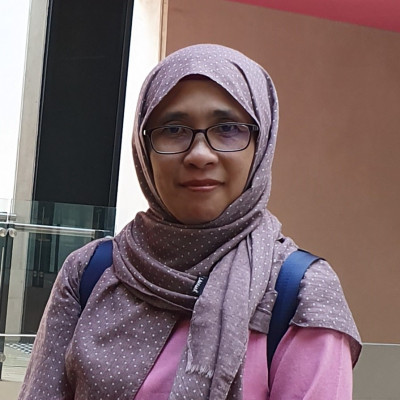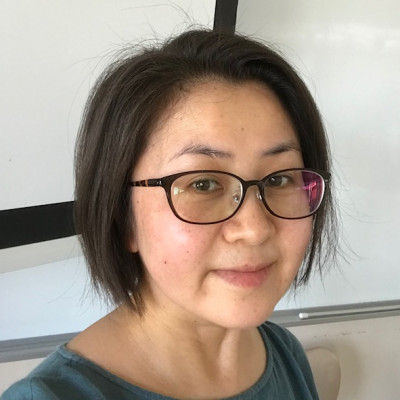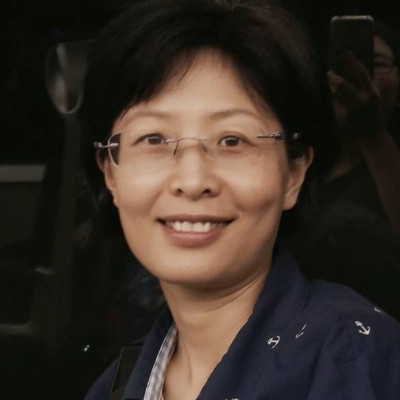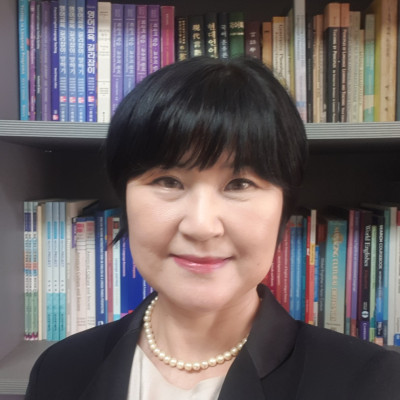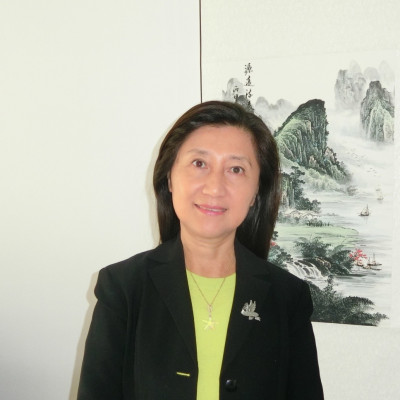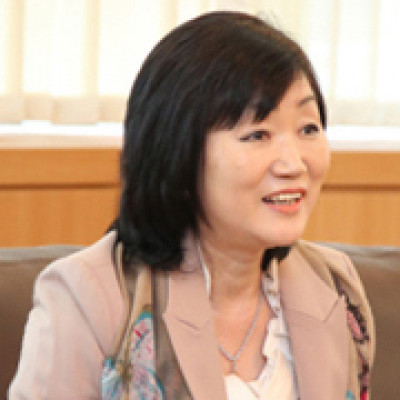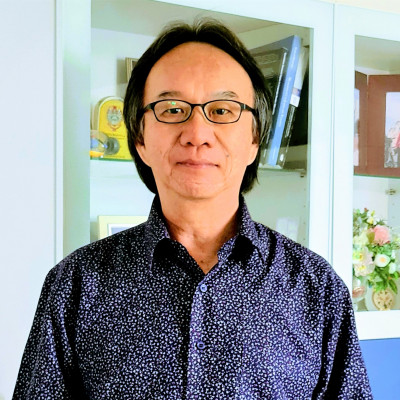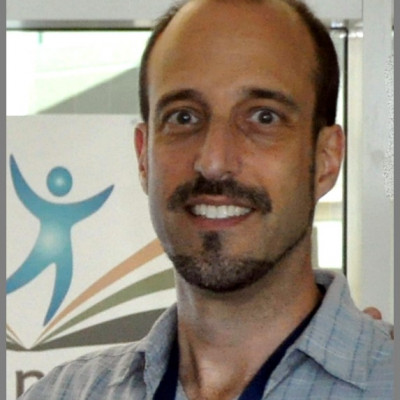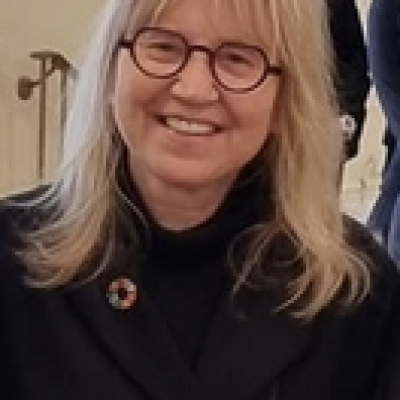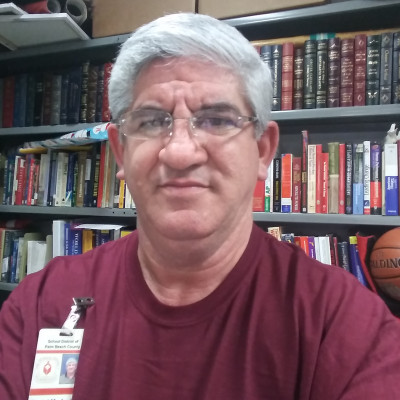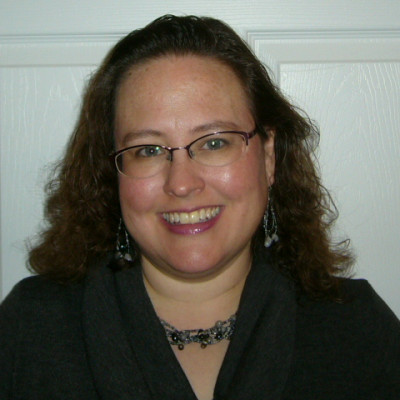Schedule Go Compact (displays all)
You can use Quick Lookup to quickly find sessions. But best is to use the LIVE SCHEDULE during the conference itself.
Please note
You didn't select any categories, so the first 120 from today are displayed. You may want to select a particular day or category if you want to ensure all (including untimed) are displayed.
Join the discussion on Discord! #3110
Join our Discord* server to interact with other participants, share resources, talk with presenters or sponsors, ask questions to the conference committee, receive time-sensitive announcements, and more!
* Discord is a chat app similar to Slack. It's fairly intuitive, and it supports text, audio, and video discussions. Click the location link for this "session" to join the conference Discord. Here is the link: https://discord.com/invite/6c98MqyrTR (Copy and paste into a browser).
Exploring Flipped Learning Through Preservice Teachers’ Experiences and Perceptions #3097
This qualitative study explored preservice teachers’ perceptions of flipped learning in the post COVID-19 era. Thirty EFL preservice teachers participated in survey research; fifteen of them joined the interviews in this study. For data analysis, survey data were analyzed along with descriptive statistics (e.g., means, standard deviation, and percentage). Then, thematic analysis was used to analyze the interview data. Thematic analysis is a useful way in exploring recurring themes and patterns in qualitative research. The findings revealed that the preservice teachers deeply considered flipped learning useful for self-regulation and autonomy. They also discussed the advantages and challenges of flipped learning. In terms of online sessions for previewing, however, they perceived the need for instant feedback from their professor and interactions with their colleagues. Lastly, the preservice teachers argued that the online sessions before the class should be closely connected to their learning in class. Pedagogical implications are also discussed in this study.
Asynchronous Session Playlist #3104
The sessions in this playlist are being presented asynchronously as videos. Ticketed participants can view the videos from April 29-May 31.
You can also access individual video links on each session's page, collected here: https://kotesol2022.edzil.la/session-marked/is-asynchronous/showcase
Considerations of Using COTS Video Games as a Language Learning Tool #3111
Statista.com reports that video games have become the world’s largest entertainment industry sector. The rapid growth and mainstream acceptance of video games have had very little impact on their adoption or adaptation to language learning contexts. Commercial off-the-shelf video games (COTS) have certainly been used for educational purposes in English language teaching. Still, their application is often not as straightforward as a graded reader, movie, song, or even something like a board game. This presentation will cover three areas that educators will need to acknowledge regarding a game’s viability and accessibility as a language learning tool. The first consideration is the learning context in which the COTS will be utilized, where the learning activity will occur. The next is the pedagogical considerations of a COTS. The final consideration, which is the largest roadblock to utilizing COTS for learning tools, is accessibility. Many obstacles such as cost, digital rights management, and usage licenses make adopting a COTS for language learning difficult; however, numerous exciting options exist to match any combination of learning contexts and outcomes.
An Investigation into the Promotion of Cultural Awareness in Locally Produced English Learning Materials in Thailand #3117
This research evaluated the extent to which two series of in-house English textbooks in Thailand, New Weaving It Together and Moving Up Critical Reading, enhance cultural awareness among different learners. A three-level model of cultural awareness established by Baker (2011) was adopted as a framework to analyze the content of the selected materials. We descriptively analyzed 120 reading passages and 150 reading exercises in total. The agreement between the two raters was almost perfect. Overall, the content of the New Weaving It Together series has more significant potential to increase cultural awareness at basic and advanced levels as opposed to that of the Moving Up Critical Reading series. We suggested that reading passages and exercises in locally-produced ELT materials should integrate content focusing on different traditional or cultural aspects and knowledge across disciplines or subjects. These include stories about science, technology, and geography, enhancing intercultural sensitivity and awareness.
Teaching Online: How Does the New Zealand Experience Match International Experiences? #2895
This presentation is based on the teaching and learning online experience of teachers and adult learners in New Zealand and Asia during the first two years of the Covid-19 pandemic. It reviews recurring themes from teacher and student feedback regarding programmes focusing on English for Specific Purposes (Academic Skills, Leadership, and Sustainable Development), taught by staff from a university in New Zealand. It compares programmes taught online with minimal/no planning in early 2020, with those formerly face-to-face taught online in 2020-2022 with a few months’ warning. It compares our experiences with those reported by practitioners and researchers worldwide, making use of local research and international publications. Comments include what goals students and teachers felt have been achieved with the online programmes, and how they were achieved. The presenter makes suggestions for the future regarding infrastructure, schedules, ‘overloading’, and staff/student familiarity with the use of both software and hardware.
CALL After COVID: Asynchronous E-Learning in Higher Education #2900
Due to both a falling level of English proficiency in Japan as well as the COVID-19 pandemic, asynchronous online English as a Foreign Language (EFL) learning has received renewed research interest in Higher Education (HE). From researching the advancements in EFL e-learning, the author argues that whenever the pandemic abates, asynchronous platforms should be continued to be used in conjunction with traditional HE EFL classroom teaching.
Since learning ought to focus on increased interactions between speakers, as per social constructivist norms, educators should increase the use of tools that promote learning inside and outside the classroom.
Therefore the research focuses particularly on exploring the strengths of Mobile-Assisted Language Learning (MALL), as it increases agency and interactions through location-independent learning, autonomy, self-efficacy, and collaborative learning. The e-learning platform Flipgrid shows promise of encapsulating these strengths and forms a basis of a discussion of the pros and cons of asynchronous e-learning, as well as an implementation proposal in a typical HE EFL scenario.
The Lived Experiences of Non-native EFL Teachers in Vietnam: A Phenomenological Inquiry #2904
The increasing demand for English as a Foreign Language (EFL) instructors throughout Asia, particularly in Vietnam, has resulted in a large diaspora of both native and non-native teachers to assist students in improving their English language proficiency. The objective of the research was to conduct an inquiry into the personal experiences of non-native speakers teaching EFL in Vietnam and the essence attributed to it. This study utilized a comprehensive semi-structured interview with 12 non-native English-speaking teacher-participants from Philippines, Vietnam, Netherlands, Venezuela, Brazil, Spain, India, Ghana, Russia, France, Ukraine, and Poland. The study revealed major themes namely: Professional Rewards, Personal growth and contentment, Promotions and Career Opportunities, Professional Predicaments, and Personal Drive. The benefits of non-native English-speaking instructor in Vietnam were all emphasized, including the strong demand for EFL Jobs, simpler hiring processing, and many advancement possibilities. There were professional issues on discrimination and biases from employers aside from the racism experienced by students. Despite the challenges encountered, there were relevant pieces of advice shared to cope with the challenges such as getting qualified, adapting to culture, and possessing passion and optimism towards teaching as non-native teaching in Vietnam.
Effects of VR and Online Public Speaking Lessons on Students’ Speaking Skills #2667
Benefits of VR for English education such as increasing engagement (Hu-Au & Lee, 2017), reducing affective filter (Schwienhorst, 2020) and public speaking anxiety (Godefridi et al., 2021), and raising students’ motivation (Tai, Chen, & Todd, 2020) are reported. Thirteen students in a two-week online study abroad program offered by a university in the U.S. to improve public speaking and acquire ICT knowledge took three VR lessons before the program. In this presentation, I will present the results of pre-and post-TOEIC speaking tests before the VR lessons and the public speaking lessons in the program, an analysis of pre-and post-questionnaires developed with reference to Can-do descriptors of CEFR Companion Volume (Council of Europe, 2020), and an analysis of students’ journals about the VR and the public speaking lessons. The possibility of integrating VR lessons prior to online or onsite study abroad programs will also be discussed.
Emotional Presence in EFL Students’ Virtual Study-Abroad Experiences Under the Pandemic #2671
The long-term impact of the global pandemic on international education makes it imperative to better understand international students’ learning experiences in virtual learning contexts. Despite the importance of emotion in online learning (Torres & Evans, 2020), it has received scant attention in the studies on emergency remote teaching (ERT) experiences. Informed by an integrated model of Community of Inquiry (CoI) and emotional presence (Majeski et al., 2018), this study investigated the roles of emotional presence in ERT and the influential factors by interviewing 12 English-as-a-foreign-language (EFL) students who virtually pursued their graduate programs at a Canadian university during the pandemic. Findings of the research show that instructors’ and peers’ emotional perception and understanding played a vital role in shaping students’ learning experiences. Factors such as instructors’ approachability, ways of communication and course design had significant impacts on emotional presence in ERT. Implications for providing effective emotional support are also discussed.
Developing American Cultural Knowledge and Sensitivity Through Historical Fiction #2673
The purpose of this session is to highlight how collaborative group discussions on historical fiction can help facilitate cultural understanding. The session will begin by briefly discussing the research of Jaran Shin, who suggests that teaching historical fiction both helps with language proficiency while also developing cultural knowledge. The speaker will then introduce the historical fiction novel “Hotel on the Corner of Bitter and Sweet,” which gives students an understanding of both past and current racial and class tensions in the United States. The speaker will then describe collaborative discussions on the novel in the form of Discussion Circles, which allow students to form their own hypotheses about characters and events, form their own questions about the target culture, and shape their understanding of the United States. Attendees will come away with an increased awareness on the usefulness of historical fiction and peer discussion for developing cultural knowledge, especially in the context of Discussion Circles.
How Different Sequences of Engagement in Cooperative Learning Affect Students' Motivation #2679
This study investigated the effects of different sequential arrangements of informal and formal cooperative learning (CL) on students' motivation, basic psychological needs, and perception of the value of CL in university classrooms. Students in two university EFL classes engaged in both types of CL in a different order. At the end of the study, they were asked to reflect on their CL experiences. Written student comments were collected and analyzed using KH-coder, a text mining system. Results showed that students who participated in formal, then informal CL, seemed to focus more on their lack of English language competence and were less intrinsically motivated than students in the other class. Students who engaged in informal, then formal CL, appeared to build feelings of peer compassion and have higher intrinsic motivation. Findings suggest that teachers should attend to the sequence of engagement when conducting informal and formal CL in university EFL classrooms.
Developing Inferencing Skills for Literature Through Students’ Personal Experiences #2939
This presentation will highlight the usefulness of students’ personal stories and experiences in developing inferencing as a reading skill, particularly when reading literature. To better understand inferencing, students can be asked to recall times in their own lives where they made assumptions based on observing details. When recalling these assumptions and their conclusions, an easy-to-understand parallel can be drawn with inferencing, or forming hypotheses based on details in a text. This is especially useful when reading literature, as a story’s plot and background is often suggested through details and is not explicitly declared. The presentation will give examples of connecting these “real-life” inferences to inferring personality traits of a novel's characters based on details about their actions, wardrobe, settings, etc. Attendees will come away with a fresh perspective on teaching inferencing as a reading skill and a greater appreciation for the use of personal experiences to inform reading skills.
Poetic Transcription in Narrative Data Analysis: A Study of EFL Teachers in Indonesia #2690
Graduate Student Showcase
One of the art-based research practices which can be adopted for qualitative research is poetic inquiry. A number of qualitative researchers have found poetic inquiry a beneficial method to illuminate aspects of the human condition and experiences. In this presentation, I will share how I adopted poetic inquiry in my current doctoral research which explored the lived experiences of EFL teachers in Indonesia as they entered their early career. I will demonstrate how I created poems from the narrative data/interview transcripts. One of the emerging themes was the struggles of the EFL teachers as they transitioned into online teaching. Through poetic transcription, the voices and emotional dimensions of participants‚ experiences could be strongly represented. I suggest that poetic transcription strategy be adopted by researchers who wish to look at their data from a new perspective.
An Introduction to the Usage of Hermeneutics in Cross-cultural Research #2947
Recognised as the theory and practice of interpretation, hermeneutics represents a methodology and philosophical framework paying particular attention to the socio-cultural, linguistic, and historical contexts shaping human experience. Contrary to positivistic interpretations of reality, hermeneutics honours the role of personal history during the negotiation of culture, presenting a versatile research methodology that recognises one’s pre-held beliefs as an inescapable feature of learning. In doing so, hermeneutics seeks not to overcome or eliminate subjectivity but to appreciate the consequences of its limits. Calling on Gadamer, this presentation intends to communicate the value and limitations of this approach, specifically to front-line, cross-cultural research. In discussing the applications of hermeneutics, principles such as effective history, prejudice, provocation, and fusion of horizons, scaffold practical tips, including the role of the post-positivist researcher, ethical and quality control measures, interview procedures, transcription, and the interpretation and analysis of data.
Why Do We Teach? A Case Study of Vietnamese University EFL Teachers #2985
Teachers’ motivation has become a critical issue in the field of education. Understandings of teachers’ motivation for a career choice, and motivation for staying in the profession can be useful for educators, policy makers, and school leaders in finding effective ways to sustain and improve teachers’ motivation. In order to achieve this objective, the current study examined Vietnamese university EFL teachers’ motivation and teachers' basic psychological need satisfaction through the lens of Self-Determination Theory. Data were collected from 104 survey questionnaires and 30 in-depth interviews completed by EFL teachers from 14 universities in Vietnam. Findings suggested that Vietnamese EFL university teachers could be simultaneously intrinsically and extrinsically motivated to become an EFL teacher, and to stay in EFL teaching. However, teachers’ intrinsic motivation was reported higher than the extrinsic motivation. Although teaching is not a well-paid profession in Vietnam, many teachers said that they were committed to teaching because of the intrinsic values of the profession. Moreover, relationships between teachers' intrinsic motivation for EFL teaching and the satisfaction of teachers' basic psychological needs were identified. Findings of the current study suggested that enhancing the satisfaction of teachers' basic psychological needs at work can result in a high level of teachers' intrinsic motivation and commitment to EFL teaching and. This supports the importance of teachers' basic psychological need satisfaction and intrinsic motivation in the quality of EFL teaching as well as teachers' well-being. The study is concluded with practical implications and future research suggestions.
How Monolingual Teachers Can Run a Bilingual/Bicultural Story Time #2992
This study presents how multi-language and culture-focused story time would support English learners develop their dual languages in early childhood education (ECE) settings. Monolingual teachers who are native English speakers at ECE are only using English and American Culture for English learners in their classrooms. Two monolingual teachers and two bilingual teachers participated in conducting a bilingual and bicultural story time while co-selecting books and collaborating with the researcher. In the bilingual story time observation and practices, teachers showed the possibilities to well incorporate home language (e.g. Arabic, Spanish, Korean) with English and how to expose English learners to diverse cultures, which can be seen in their communities. Especially, how young children have been empowered listening and speaking their home languages and cultures at school. This research made teacher raise their awareness of the importance of language-focused education for young children and contribute to teacher education at ECE in Korea.
Second Language Online Teaching in K-12: Challenges and Recommendations #2995
This study examined how teachers of Korean as a second language in the U.S. adapted to online teaching during the pandemic. At a Korean Heritage language school located in the US, qualitative data including survey (n=11) and follow-up interview (n=8) of teachers were collected and analyzed. Teachers shared their own perceptions and practice on using target language only (Korean) or using English in their classrooms. In the preliminary results, this study shows the dynamics of online teaching depending on different age group and the proficiency level of Korean. Especially, depending on the grade level of students, teachers need to use different strategies depending on their motivation and interests in learning Korean. With teaching experiences, teachers showed different use of languages. For older students, using English was beneficial while parents’ support was helpful for younger students. Findings indicate that learner variables such as age, proficiency, and language use affected teachers' decisions.
A Study on Students' Difficulties in Learning Latin-Rooted Vocabulary #2997
The study aims to find out English for Nursing course students' difficulties in learning Latin-Rooted vocabulary at a college in Ho Chi Minh City. A survey is conducted to find out what difficulties in learning Latin-Rooted vocabulary in ESP and how could they handle those difficulties. The data collected from 30 students show their concerns upon the lexicon understanding, the usage of those vocabulary in the context and mostly how to memorize the words. Data collecting instruments include think-aloud protocol and questionnaire. The follow-up interviews and the thematic analysis later stood the findings on their difficulties in Latin-rooted vocabulary learning. Mind-mapping and morphological rules are mostly applied to solves their problems so far as pedagogical implication in the case studied.
Teach Business English Responsibly: Case Studies for Social Responsibility and Sustainable Development #2746
This presentation reports on a newly implemented Business English curriculum utilizing business case studies focused on corporate social responsibility (CSR) and the U.N.’s Sustainable Development Goals (SDGs). Seven intact “Career English” university classes participated in a semester-long course following the new curriculum. Preliminary findings show that the course increased student motivation, interest, and engagement, as well as practical knowledge of business English and the ability to communicate in business settings. Grounded in task-based language teaching, case studies require learners to critically analyze real-life problems faced by companies, develop feasible solutions, and suggest courses of action. In the language learning classroom, this method gives participants the opportunity to enhance communication skills, negotiate meaning, learn business discourse and correspondence, and critical thinking. Furthermore, case studies meaningfully integrate content and language learning. For this course, learners were asked to investigate a company’s CSR policies and propose solutions that contribute to the SDGs.
Developing Multilingualism Through Immersion: The Importance of Motivation #3003
How can teachers motivate students to achieve a high level of proficiency in multiple languages? This presentation will describe the experiences of two Korean graduate students who developed multilingualism through language immersion. These students represent a group of seven participants who were systematically interviewed for a study on the role of motivation in achieving multilingualism for a research study by a graduate student.
The presentation will begin by describing the background research on motivation and immersion education, highlighting the work of Zoltán Dörnyei's L2 Motivational Self System. Most of the presentation will focus on the cases of the two Korean graduate students, who will describe how they became trilingual in Korean/Japanese/English and Korean/Spanish/English. They will identify the most important sources of motivation that contributed to their multilingualism, including self-monitoring, content-based instruction, social integration, and developmental factors related to age. The presentation will conclude with a diagram showing the most significant motivating factors, with suggestions for how teachers can use these findings.
Exploring How to Improve Language Skills in a Language for Specific Purposes Course #2748
The importance of courses on languages for specific purposes has gained more attention in foreign language departments. On the one hand, these classes have been shown to provide students with benefits that go beyond learning a foreign language, such as increasing students’ motivation and critical thinking. On the other hand, not only students, but the community as a whole benefit from these classes, as students are better prepared for their work they will have to do later on in a foreign language (for a review, Brown & Lee, 2015). For example, a doctor who has learned English for Medical Professionals can attend both English- and other language-speaking patients. However, not many departments are able to include such classes into their curriculums. Either they lack professionals versed into teaching such courses, they do not have enough time to implement them in an already full curriculum, or they do not have the monetary resources to hire the appropriate instructors (Macedo, 2019). This study explores the possibility of offering the same benefits as those gained through courses on languages for specific purposes when teaching a traditional foreign language class. Specifically, this study explains how a Spanish advanced debate class (proposed to help students reach an advance knowledge of speaking in Spanish) included materials traditionally found in a Spanish for the Science class (e.g., vocabulary activity or texts). Students gained in vocabulary, grammatical structures associated with the field of science and were ready to deliver a very coherent and solid debate on a difficult topic for them. Not only the benefits were found in how they delivered a speech on a topic related to sciences, but also the benefits transferred to their writing skills, when they were asked to write an argumentative text on this same topic. This presentation will also propose ways on how the techniques and materials traditionally found in a language for specific purposes course can be implemented into any foreign language classroom, specifically English as a foreign language.
REFERENCES Brown, H. D., & Lee, H. (2015). Teaching principles. P. Ed Australia. Macedo, D. (2019). Decolonizing foreign language education. The Misteaching of English and Other Colonial Languages. NY: Routledge.
Pedagogy of Compassion and Service Learning #3005
Partner Session (ELTAI)
Education gets its purpose when it nurtures human values of warm-heartedness and compassion. Focussing on transforming an individual from a human being to a state of being human, the research talks about various approaches that teachers adopted to practice pedagogy of compassion which found solace when remote learning came to everyone’s rescue during the stressful circumstances born out of unprecedented times. The research suggests various ways that promoted independent learning and a culture of inclusivity to develop humane qualities in students during the pandemic. It talks about experiences gained by students in developing a mindset for service learning and reaching out to the community. Meeting a goal of bridging compassionate pedagogy and service-learning, the research also talks about tenacity and resilience imbibed by the students consistently while making a worthy connection with all. The research suggests that reflective learning played a vital role in shaping up students as empathetic beings.
Teacher Role in Decreasing Student Anxiety in the Language Learning Environment #2750
Foreign Language Anxiety is known to interfere with the acquisition, retention, and production of the target language. Based on a previous study conducted on language learning anxiety, which investigated anxiety-causing activities as well as student beliefs, it was determined that the teacher plays a key role in helping students mitigate foreign/second language anxiety in the classroom. Therefore, the aim of this study was to investigate student beliefs on the role of the teacher in decreasing feelings of anxiety and determine how teachers can better assist students to overcome these anxieties. The findings revealed that a teacher’s relationship with students is a major component of a student’s academic success and emotional well-being. The study conducted followed the qualitative method of research, with participants consisting of 1st and 2nd Year university English majors, in a communicative course.
Navigating Through the Discipline as Novice Researchers: Citation Practices in Academic Writing #2751
Using citations effectively and incorporating secondary sources in academic writing add credibility to the author and help avoid plagiarism. Selecting and integrating academic material in one’s argument requires careful analysis and evaluation of texts, analytical thinking and critical reading skills, as incorrect practices often lead to violation of academic integrity or false interpretation of the original texts. Students are aware of the importance of citing sources correctly, yet its complexities present numerous challenges. The study investigates first year undergraduate students’ citation practices in an Academic Writing course at an American university in the UAE. Surveys were conducted with 72 students of various nationalities and academic majors taking the course to identify areas where they struggle with citing sources. Findings also reveal that through their experiences they not only appreciate the importance of academic integrity and research but also critical reading analysis and the construction of cogent arguments. However, in order to master the skills of using citations correctly, students require teachers' constant support and reinforcement.
Beyond Words: Using Photo Voice for Community Engagement and Language Development #2753
Photo Voice is a qualitative research method for community-based participatory research to document and reflect reality. It was first used in rural China to learn about the lives of women farm workers (Wang and Burris, 1997).The women used their photographs to make an impact on the region’s policies. Since then, it has been used around the world as a vehicle for social change. In most cases, Photo Voice is used as a type of action research with participants as an integral part of the research process, using pictures they take to develop new ideas and solutions to challenges. Participatory photography through photo voice creates a space for discussion and action on issues of student engagement, school reform, and social services. (Examples can be found at https://photovoice.org/projects/) Drawing from this relatively new field, a group of teacher leaders in Cambodia decided to apply the Photo Voice technique as a way to understand the community and develop language and communication skills in English and Khmer. This Pecha Kucha will introduce Photo Voice, showcase student projects, and discuss how this type of participatory research led to understanding stakeholders’ needs and assets all while building the language skills of participant researchers and students.
Improve Speaking 50% in One Semester. By Speaking. #2769
This presentation has no theory, only primary sources. It is based on 10 years of Korean university freshmen conversation classes, with approximately 1500 students and 4500 conversation test transcripts. The conclusion is that if teachers will simply step aside and let freshmen speak, their speaking will improve at least 50%. Candidly, it is sinfully easy to improve their speaking ability, because candidly, their speaking ability is so low. All freshmen have had a decade of grammar-based English, and most cannot smoothly tell you what they had for lunch. For most of them, saying two self-composed sentences back-to-back would be a 100% improvement. There is absolutely no grammar, because attention to grammar in university freshmen slows down, inhibits, gums up, reduces speaking ability. This brings up the billion dollar question: Is real-world speaking ability an academic skill? YES. Clear confident speaking ability is the sign of an educated person.
How to Include Justice, Debate, and Rhetoric in EFL Classes #2770
The EFL classroom is a great place for students to ask and answer important questions and develop their language while doing so. The question is how can a teacher facilitate this? In this pecha kucha, the presenter will offer some handy guidelines based on his own experiences. These include how to frame important questions for students (justice), how to get them engaged with those questions (debate), and how they can be taught to argue more persuasively (rhetoric). This presentation includes an overview of the concept of justice (taken from “Justice” by Michael Sandel), which can inform the design of debate/discussion classes. It also includes an outline of the presenter’s preferred approach to implementing pair/small-group debates in EFL classes with minimal preparation. Finally, the presenter will suggest an accessible way to teach students to argue more convincingly based on a 3-part definition of rhetoric: ethos, logos, and pathos.
“Did You Say Pragmatics?”: Advancing Instructional Design to Address Negative Transfer #2781
Ample research in the field of pragmatics has confirmed the effectiveness of explicit instruction. However, this body of knowledge has been largely limited to the study of intermediate second language learners. This narrow focus leaves teachers of beginner and advanced students with little guidance when it comes to the instructional design concerning pragmatic skills development in face-threatening scenarios. Based on a 2021 study of negative pragmatic transfer among Japanese university students, this presentation explores how the research into negative transfer and L2 proficiency can serve as a guide for teachers who are planning and conducting pragmatic instruction, such as refusals or requests. Grounded in extensive data and experience teaching Japanese English learners, the presenters will introduce their metapragmatic instructional approach and several classroom activities in order to illustrate how to teach pragmatically appropriate responses to learners at all levels of proficiency. Presentation takeaways will be applicable in global contexts.
Diversity in Learner Negotiation of English L2 Identity; Implication for Korean ELT Praxis #2783
Building off McNeill (2021) examining the value of the L1 in ESL/EFL classrooms, the presenters introduce the role of exploring students’ L1 and EFL identities as a means for teachers to understand their students’ personal L1 Korean socio-linguistic identity, and the relationship with and negotiation of their English identity. Leveraging awareness of students’ L1 and EFL identities places learners in a position of language informers, offers a form of socio-cultural dialogue, and expands the English language learning experience. With this, the presenters share activities and projects for how EFL teachers can explore the complex interrelationships between language and culture, and their students’ sociocultural identities through explicit discussions in their classrooms. Language learning is more than words, and it is beneficial for language learning in and outside of the classroom.
Development of a New Rubric for Assessing Interactional Competence in Group Discussions #2795
In recent years, more researchers have been assessing speaker interactional competence (IC), a concept that builds on earlier models of communicative competence. In contrast to earlier models of communication, IC more explicitly accounts for the co-constructed nature of talk. IC consists of interactive listening, topic development, dealing with communication breakdowns, inviting contributions, and responding accordingly (May et al., 2020). The roots of IC are conversation analysis (CA), a fine-grained and powerful form of analysis, but one that requires training and experience. As a result, there are currently few widely-used rubrics for assessing IC. In this presentation, I will describe how I created this rubric for assessing IC. As this research project is ongoing, I will examine some initial data in the form of audio recordings and transcripts, discuss some preliminary findings, and suggest possible improvements for future versions.
Reflecting on Listening: Learner Insights from Metacognitive Journals #2798
Learners encounter common L2 listening difficulties, such as time commitments, repeated mistakes, and activities in their lessons. Research suggests that journals can help learners reflect on their performance, plan their approaches to listening, and help learners attend to their real-time listening difficulties.
This study analyzed 60 Japanese university learners’ listening journals to understand their out-of-class listening selections. Learners completed one homework journal for five weeks, using metacognitive knowledge prompts to reflect on their listening selections, task ease and difficulties, and their listening goals.
The results showed that learners selected familiar listening resources. Learners reported that familiar accents and listening texts with visual aids were beneficial, while speed and unfamiliar topics contributed towards listening difficulties. Learners’ reported listening for key words, manipulating the speed, and listening in sections as goals in their future listening lessons. The presentation concludes by outlining how to use learner journals in listening lessons for educators to use in their own classrooms.
Using Context-Specific Word Lists to Analyse the Lexicon of Academic ELT Textbooks #2799
Although textbooks in foreign language programmes provide teachers with support, attending to specific vocabulary difficulties remains challenging. Understanding the vocabulary load of textbooks can help teachers use accessible materials and clear instruction in the curriculum design process.
Research suggests textbooks are not adequately covering high-frequency vocabulary, so further analysis is needed to ascertain the lexicon of textbooks and understand their suitability for learners in varying contexts. This study outlines research using a general word list and a Japanese-context word list to investigate the lexicon of two commercially published textbooks. The results show that although the vocabulary load of each unit in the textbooks become increasingly difficult, overall, the textbook is too lexically demanding for Japanese-tertiary level students, with knowledge of 8,000 words necessary for comprehension. Finally, pedagogical implications, including the use of word cards and vocabulary quizzes to assist the needs of students will be discussed.
The Meaning of Writing in English: Focusing on Writers’ Felt Sense #2803
This study explored the felt sense, unspeakable senses, of EFL writers through their experience of writing in English using the following research questions: What felt sense do EFL writers express? What does writing in English mean for these writers? This study adopted the TAE (Thinking at the edge) approach to examine the emotions related to writing in English for three Japanese EFL learners. Data from the participants’ ten TAE worksheets following the seven phases of the TAE process (Tokumaru, 2011) and individual interviews were collected. The findings indicated that participants struggled to clarify their ideas due to the differences in expressions between Japanese and English. They also had difficulty organizing their thoughts into paragraphs, which negatively affected their confidence in using English. However, they revealed that their sustained efforts to write using L2 highlighted the importance of developing their writing proficiency and building their sense of achievement regarding writing in English. This presentation provides a discussion on teaching writing based on writers’ felt sense of English writing.
The Power of Obsidian: Revolutionising How We Take Notes #2804
Note taking is a skill that is simultaneously recognised as essential for effective studying, yet often neglected in terms of teaching. This is particularly prevalent in an ESL/EFL context where many curriculums fail to implement a systemised approach to taking notes. The repercussions are significant as students who do not know how to organise their learnings are far more likely to submit work that is substandard. This presentation will look at the importance of note taking and the benefits it provides in terms of improved comprehension, increased memory retention and maintaining an organised record of learning. A system called Zettelkasten will also be explored which transforms note-taking from a memory retention tool into a powerful platform for critical thinking and creativity. The final stage will present an application called ‘Obsidian’ that provides a digitised approach to note-taking and will aid teachers and students alike in optimising the learning process.
Teachers Helping Teachers Teach for a Better World #2807
"No man is an island" it was written. Ignoring the dated language, the sentiment was for community-building. While many in the ELT world pursue improvement in their own classroom, "it takes a village to raise a child." Here I will argue for the teaching village, supporting each other, to raise standards and support teachers. There will forever be novice teachers, and in Korea, that can mean those with minimal or no training/education in the field (I was one). As a "Community of Practice" -- Teachers Helping Teachers -- we can educate and support teachers to meet professional standards. This paper will explore cases of teacher organizations around the globe, particularly in EFL settings (emerging circles of English), and how a teachers' organization can support teachers, and how teachers can support organizations that support teachers. Conferences/Seminars are only the beginning! Combining our scholarly literature, contacts with other TESOL-type teacher associations, and surveys of members and stakeholders in ELT around the world provides invaluable insights often missed in narrower perspectives. The ultimate outcome in contemporary ELT is not simply students learning English, but improving society through English teaching. More than grammar, vocabulary, and pedagogy. Teachers and organizations of teachers can make that happen.
Exploring Language, Culture, and Interculturality in Korean EFL Education Through Mediated Discourse Analysis #2808
Given its intertwined nature with culture, language is an undoubtedly significant vehicle that helps learners understand their interlocutors in intercultural communication. However, culture in EFL education is often used to distinguish and classify people regarding nationality, race/ethnicity, class, gender, history, and cultural activities and practices rooted in geographical categorization (Irani & Dourish, 2009; Kramsch, 2014). Within the framework of critical intercultural education (Dervin, 2020), this study investigates cultural and linguistic values and beliefs embedded in supplemental learning materials for Korean Grade 6 EFL students. Using mediated discourse analysis (Wells & Wong, 2012), this study analyzes hidden messages and meanings in multimodal semiotic systems within the material (i.e., an animated video clip). Findings reveal ideological values of English and Korean and the deficit view of non-Korean ethnic people. This study urges teachers, researchers, textbook makers, and other stakeholders to challenge the practice of the us-and-them dichotomy in Korean EFL education and develop interculturality among students and teachers.
Teaching Prepositions in a Modern Grammatical Context #2810
Many mistaken ideas still plague our grammar books and lessons today. Here, we present the case of prepositions. As early as the 1700s, a few grammarians had realized a deep flaw in the way we think about these words. The fundamental flaw, applying across most frameworks, is in the idea that a preposition must have an object NP as its complement. Our reanalysis, based on that of the Cambridge Grammar of the English Language, vastly reduces the number of subordinators and also significantly cuts the number of words like "before" which have wrongly been said to be adverbs here, prepositions, there and subordinators elsewhere. This understanding allows teachers and students to leverage strong commonalities that apply across all PPs, commonalities that we set out. We acknowledge that this shift in thinking can be tricky for teachers who may expect it to be confusing for students too. We clearly show that this system is in fact much simpler, both to teach and to understand.
AI-Generated Voices for Diversity in ESL Materials #2811
ESL materials are often improved with the inclusion of high-quality recordings. Unfortunately, producing such recordings can be expensive, time-consuming, and complicated. Moreover, when recordings are included, they have typically been limited to Standard accents, even though non-Standard English is a natural part of ESL listening. Not only does this limit the students’ familiarity with non-Standard accents, but it also promotes accent discrimination.
AI speech models have improved dramatically and now have many expressive and naturalistic features. Moreover, these are available in a wide range of voices and languages with fine grained control over speed. Interestingly they can produce English speech in typical foreign accents. Finally, all of this is generally available to anyone producing language materials.
In this presentation, I introduce a set of these models, demonstrating what they can do and what we can do with them in ways that promote equity, diversity, inclusion and good language learning.
Building A Better World by Breaking Bias: Thoughts for Educators #3011
In this interactive talk, Anu will help participants discern the difference between conscious and unconscious bias, what we would save financially and socially by breaking bias, and the five PRISM tools we can use to break bias. Participants will understand the social and financial costs of unconscious bias in education, practice PRISM tools (BE MORE with Anu’s unique, mindfulness-based toolkit for breaking bias), and develop curiosity and a solutions orientation toward breaking bias. Learn more here: https://koreatesol.org/content/pre-conference-special-plenary
Opening Ceremony #3123
Welcome to the 29th Korea TESOL International Conference! Join us at the opening ceremony for a brief introduction to the conference; an overview of the various technology platforms we're using; announcements of the Research Paper of the Year Award, the Reflective Language Teacher Award, and the first annual TEC Article of the Year Award; and opening remarks from Bryan Hale, the president of KOTESOL, and Kathleen Stephens, former ambassador to Korea.
Click the link above to view the video of this session, which was held synchronously on April 30, 2022, from 9:30-9:55 a.m. (KST)
How to Create Engaging Lessons in Virtual Contexts #3015
Workshop Session
The virtual world has come to stay. Usually engagement is one of the challenges educators face in the virtual setting, plus access to tools depending on the varied contexts. This session will explore different virtual tools that can be used to promote engagement during professional development. Participants will leave with ideas on a variety of tools and activities that can be easily adapted to any teaching context.
Teaching Language, Teaching Peace: Bridges to a Better World #3016
Featured Session
Teaching language and teaching peace are linked because both are bridges to a better world. What do people want most in Daegu, Delhi, and Denver or in Busan, Berlin, and Buenos Aires? What is the greatest hope in Gwangju, Guatemala City, and Gaza or in Mokpo, Manchester, and Mumbai? All over the world, we need and hope for peace. Rebecca Oxford defines peace as harmony and explains that it has at least three broad purposes: (a) to calm our minds and hearts, and give us a sense of well-being (inner peace, or peace with oneself); (b) to develop friendship, loving appreciation, and social justice in relationships with individuals, groups, countries, and cultures (social peace); and (c) to care for and enjoy Mother Nature’s wildlife, water, land, sky, and planets, and realize that nature supports our very lives (ecological peace). In short, peace involves caring for ourselves, others, and our environment.
How can we do this? Martin Luther King, Jr. said that peace requires working productively to harmonize conflicting perspectives, while Elise Boulding stated that peace demands imagination and love each day. Purposes and methods of peace are part of Oxford’s Language of Peace Approach (LPA). The LPA helps teachers integrate peace activities into teaching EFL or other languages, resulting in students’ greater language practice and competence, increased interest in peace, and stronger peacebuilding abilities. Teachers can benefit by developing their own peacebuilding skills while teaching students! Rebecca illustrates ways to weave inner peace, social peace, and ecological peace into language education, thus creating bridges to a better world. For instance, inner peace can be fostered by affirmations, mindfulness, deep breathing, and listening to music. Social peace depends, in part, on basic verbal communication strategies, nonverbal communication tools, and a simple, nonviolent communication process. Ecological peace is aided by forgetting responsibilities for a moment, walking outside, noticing colors of nature through the Rainbow Walk, and writing about how nature takes care of us and how we can take care of nature (Oxford, Olivero, Harrison, and Gregersen, 2021). The session closes with words from and pictures of important peace role models from many cultures – people who have built bridges to a better world through peace and through language. This session also offers insights to people who are not teaching but are seeking ways to bring peace more fully into their hearts, their relationships, and the environment. All of us can be peacebuilders.
Perceived Efficacy of Content and Language Integrated Learning Across Academic Subjects #2766
Teachers in Korea commonly integrate academic subject content and language teaching, an approach whose efficacy has not yet been firmly established. This presentation will explain a research project on perceived efficacy of different academic subjects used in content and language integrated learning (CLIL). The project targeted both current and former students of a public Korean high school CLIL program and examined their perceptions of CLIL efficacy across six subject categories. A quantitative survey approach was employed to collect data from a large number of students (N = 123). The collected ordinal data was analyzed using non-parametric statistics, revealing multiple significant differences with large effect sizes (r equivalent > .9) in perceived efficacy among pairwise comparisons of the academic subjects. The presentation will also outline how these initial findings will be valuable to teachers and program designers and present paths for additional research necessary to establish CLIL efficacy for the Korean context.
Prosody Interventions 101 in the Online or Offline Speaking Fluency Classroom #2772
Although there is sufficient research supporting the usefulness of helping students to become more intelligible with speaking, until recently, few teachers offered direct instruction of pronunciation beyond the syllable level. Increasingly, more instruction is being offered, however, due to lack of confidence or practical training, teachers continue to shy away from dealing with pronunciation in their classrooms. This workshop is meant to fill some of the gaps in training and build interest in interventions with pronunciation. The presenter will demonstrate how to use short readings and listening passages to teach prosody (particularly supragegmentals). The methods used have been implemented at high school, university, and with adults (CEFR A1~C1). Preliminary data point to a deepening of student understanding of the tendencies inherent in English speaking, increased ability to catch the topic and main ideas while listening, improved awareness of own weaknesses, and greater motivation to improve own intelligibility.
Beyond the Lyrics Gap Fill: Low-Preparation, High-Participation Activities Using Songs in Class #2789
The use of music in language classes has long been connected to increased motivation and engagement, enhanced intercultural awareness, and improved learning outcomes for students (Talada, 2015). Language teachers are thus often keen to incorporate songs into their lessons, but the challenge can be determining the best way to do so (Bos, 2019). Although “Gap Fill” listening exercises are perfectly valid, they are often overused, as teachers may be time-poor, or unaware of what could be done with a song in the language classroom. In this workshop, we explore a variety of song-based activities, with a focus on three areas: improving language skills, building community, and stimulating creativity. This immersive workshop is conducted in line with principles of experiential learning (Kolb, 2015), with opportunities for participants to experience practical ideas, then reflect on how they can implement these in both the physical and virtual classroom.
Incorporating Student Peer Evaluation Rating Feedback in the Calculation of Participation Scores #2662
A frequent criticism of using class time for student presentations is that students are only required to make their own presentation and then there is no quantifiable measure of the degree to which they further participate in such activities, for example, by critically evaluating other participants’ efforts. The advent of Cloud Computing and more recently online education makes this fully possible; however, it requires certain knowledge about Forms and Spreadsheets. This presentation will explain how to use Forms and Spreadsheets toward that end. It is based on several years of experience where students’ active participation during presentations was required and ultimately included as part of their participation grade. No previous knowledge is required for participants and better practices will be demonstrated step by step. Outcomes will include better knowledge of how to use Forms and Spreadsheets to empirically include student rater feedback to calculate their participation scores.
Chinese EFL Learners’ Willingness to Communicate in an Online Class: An Idiodynamic Approach #2802
Underpinned by MacIntyre et al.’s (1998) heuristic model, this study adopted an idiodynamic method to investigate fluctuations in the level of willingness to communicate in a second language (L2 WTC) in an online class. Seven EFL university students participated in four sessions of an online class (each lasting 20 minutes). Following the completion of each session, they rated their L2 WTC by filling in an online editable excel spreadsheet with a scale of -5 (not willing to communicate at all) to 5 (most willing to communicate) on a minute basis while watching a video recording of their performance. Subsequently, stimulated recalls and semi-structured interviews were combined to identify factors affecting moment-to-moment changes in their L2 WTC. Results showed that L2 WTC highly fluctuated during sessions 1 and 2 due to joint influences of trait-like (e.g., introverted) and state-like factors (e.g., technical issues). In contrast, a more stable pattern of L2 WTC was observed during sessions 3 and 4, mainly due to state-like factors, such as adequate support from a teacher. These findings suggest that EFL learners can become more willing to communicate in an online class through teachers’ affective, technical, and pedagogical support. Methodologically, this study shows that an idiodynamic method is a useful analytical approach by which to understand the fluid and dynamic nature of L2 WTC in an online classroom—an emerging L2 learning environment. Pedagogically, we offer insights into how language teachers need to respond dynamically to such factors during the course of an online class. We recommend that teachers choose interesting and familiar topics, integrate game activities into L2 tasks, provide learning stimuli (e.g., photos), upload recorded online lessons into their respective learning management systems, provide affective support by recognizing students’ efforts verbally or by using emoticons (e.g., a thumbs-up emoji) to make students feel connected with a teacher and other classmates, offer considerable wait-time for their responses during an online lesson, and promote peer encouragement and nurture a positive online learning environment.
Social Justice and the Future of English Language Teaching in Korea #3112
KOTESOL Social Justice SIG
Defining social justice and critical education in Korean ELT as a starting point, audience members will be invited to frame this in the Korean context of English language teaching. Significant issues will then be brought forward which directly relate to the benefits or disadvantages of English language education and the broader sector as it exists in Korea in 2022. This will be a largely interactive session where participants shall be encouraged to post questions and comments on a online platform and to engage in conversation in the live session. The ultimate objective shall be to attempt to approach a consensus through dialogue on the purpose of critical education and social justice to English language teaching in Korea.
The 10 Myths of English Language Teaching and Learning #3013
Featured Speaker (Second Session)
This workshop introduces our new book (영어교육에 대한 10가지 환상, 10 Myths of English Language Teaching and Learning; 2021, 글로벌콘텐츠/Global Contents), which is a Korean translation from the Japanese version with annotations that address similar issues in South Korean contexts. The primary purpose of this book is to question common beliefs about English language teaching and learning in Japan and South Korea. These briefs have been pointed out as problematic by scholars in applied linguistics in the West during the last 30 years or more, but they have continued to be supported to date by teachers, parents, policymakers, and other ordinary people outside of academia. Many of the ideas presented in the book invite readers to rethink taken-for-granted ideas about what the best approach to teaching and learning English is. The audience will be invited to gain renewed knowledge and ways of thinking that would contribute to linguistic and human diversity and equity.
The Power of Collaboration: Building Networks, Connecting Educators #3014
Featured Session
Collaboration is at the core of professional growth. As we engage in collaboration, we are promoting negotiation of personal and professional goals, and embarking on the journey itself. Collaboration can include sharing, exploring, and supporting; this results in creating new learning experiences for educators that translate into the best experience in the classroom. This presentation will describe how collaboration contributes to build networks and bridges of professional development, how it serves the purpose of creating engaging lessons, promoting collaborative research, and leading projects as well as building trust. It will provide examples of collaboration among teachers for teaching and professional development. Participants will leave with a set of examples and ideas that can easily be adapted to their own contexts, considering their own realities.
The "Why" and "How" of Student Presentations: Two Distinct Approaches #2767
Presentations are essential in the real world, and developing presentation skills is fundamental in ELT. This workshop features two distinct approaches to presentations utilized by two colleagues from the same department, who both teach Communicative English. Despite having the same student numbers and departmental requirements, each presenter may capitalize on individual strengths to maximize pedagogical goals and student learning outcomes. Ultimately, their students have engaged with two highly different presentation formats: 1) individual with traditional presentation structure, and 2) group with the highly structured framework of PechaKucha. During this workshop, each co-presenter will briefly describe how student presentations are integrated into their lessons. Then attendees will break into small groups to discuss their experience with student presentations and consider potential applications of the methods explained. Ideally, attendees will leave the workshop with a clearer understanding of why and how they incorporate student presentations into their curriculum.
Effective Education for Refugees: A Case Study on North Korean Educational Perspectives #2774
Effective educational systems provide refugees with freedom and support to develop personal skills and knowledge. Additionally, educational systems that support aspirations or goals can have positive impacts on the way students view their educational experience and the satisfaction they feel from it. As internationalization of education increases and refugees continue to flood into regions all over the world, understanding the dynamic factors that shape educational perceptions is vital. This study utilized a phenomenological approach to analyze North Korean refugee educational perspectives first collectively (through surveys) then individually (through interviews). The goal of the current study was to analyze the personal shift in educational perspectives of North Korean refugees as they encountered two vastly different educational systems. The current study utilized Bandura's triarchic reciprocal determination model as a theoretical framework. Using North Korean refugees as a case study, attendees will examine the factors that positively affect refugee student educational attitudes and satisfaction. Furthermore, attendees will consider how pre- and post-settlement experiences shape behavior within academic environments.
Education and Prefigurative Politics: Six Pedagogies for Working Toward Peace/Justice Today #2765
This study examines the contribution of university educators toward prefiguratively creating tomorrow today in the higher education classroom. Educators often teach explicitly for social justice and social change through a variety of normative pedagogical frameworks. Yet, this linkage of pedagogy and prefigurative politics in university classrooms is underexamined. Hence, this paper investigates the varied literatures related to pedagogy for social change in universities, including but not limited to: (a) democratic pedagogy, (b) critical pedagogy, (c) transformative pedagogy, (d) conflict-sensitive pedagogy, (d) peace/social justice pedagogy, and (e) decolonial pedagogy. The paper examines the literature through the lens of prefigurative politics/pedagogy, which is understood as a form of praxis that attempts to reconstruct through education a more fair society. This is complemented with data from interviews with university educators in Korea. New pedagogical possibilities and critiques will be discussed.
Developing Critical Literacies Through Learning English as Second Language: Discourse Analysis Study #2790
The presentation aims to examine English learning discourses in Asia from a critical literacy perspective. The role of critical literacy is assisting students in developing the ways in which those ideologies, identities, and power in society and school, and the ways in which language works to challenges those relations. Ultimately, students have options to choose or challenge the status quo. This presentation will discuss steps to develop critical literacy skills through curriculum in TEOSL education. Drawn from the critical pedagogy, the critical pedagogues believe education is first and foremost a means of social transformation because injustice, power asymmetry, and human suffering do exist. In the TESOL education, it is necessary to unpack the discourse and ensure equity when learning a second language or design a curriculum. The discourse data were analyzed from the government reports and discourses from various educators and parents. From there, it will provide an analysis for the reshaping of discourse in English education in Asia. The discourse can provide schools to have clear objectives to develop curriculum, help parents to support their children, and motivate children to develop critical thinking when pursuing a second language learning.
Korean University Students' Vocabulary Learning Strategies in the 21st Century #2669
Foundational surveys of what vocabulary learning strategies English learners employ in their studies were completed twenty to thirty years ago. This presentation reports on a survey administered to 135 Korean university students to see if vocabulary learning strategies have shifted along with the shifts in technology and educational practices in the 21st century. The survey updated Schmitt’s taxonomy of strategies to include modern technology options, then presented it to contemporary students. Results from the study were compared to Schmitt’s results from the 1990s to look for differences in strategy use. Contemporary students seem more likely to employ vocabulary learning strategies, but newer technologies are used for meaning discovery much more than for vocabulary consolidation. Teachers should be aware of the changes in student vocabulary learning strategy implementation, and ways to use the findings to help students more easily learn vocabulary are presented.
Peer Editing and Feedback in L1 #2986
What importance might L1 peer feedback have for L2 learners? Olshtain (2001) has argued the importance of clear, organized feedback as crucial for the succeeding draft (quoted in Yuce and Atac, 2020). This leads to a discussion on determining the appropriate stage of communication in L1 or L2 to promote a learner’s development. Other researchers (see Hyland & Hyland (2006); Franklin (2010)) suggest that peer editing in L1 avoids possible misunderstandings while developing crucial social skills. Should such skills be a goal in peer editing? The presenter will share classroom action research and invites participants to share their own insights.
Creative Use of Corpus of Contemporary American English in Teaching Collocations (101) #2757
Over the past forty years, the use of English corpora in the English-language classroom has increasingly become prevalent. Given the pedagogical importance of corpora, this workshop aims to showcase how the Corpus of Contemporary American English (COCA) can be creatively used in teaching English collocations. In the workshop, participants will first be introduced to the concept of mutual information (MI), an important measure of associational strength of the collocations. Research has shown that non-native speakers of English tend to overuse collocations with low MI scores, while natives favor less frequent collocations with high MI scores. Following this, participants will learn how to interpret the MI scores of the collocations found in COCA. The workshop ends with three hands-on activities showing how teachers can increase students' awareness of collocations with high MI scores. The activities presented in the workshop would be the most beneficial for upper-intermediate students.
Language and Literacy in Online Games and Esports #3019
Featured Session
Video games have emerged as the leading entertainment media among youth, garnering more daily attention and time on task from middle schoolers and teens than homework. Due to their time demands, games are often positioned in competition with literacy and learning rather than part of it, but what if games were instead a hook to get kids reading in situated, interest-driven ways? In this presentation, I review more than a decade of empirical work on the relationship between video games play and literacy. From fan fiction writing to reading textbooks as a way to “cheat” the system, games recruit print text in multiple ways as a natural everyday part of digital play. Here, I review the quantity and quality of reading in relation to games, how writing is positioned online as another form of gameplay, and the role that interpersonal communication plays in successful esports competitions.
Elementary School Teachers’ Design and Implementation of Pushed Output for CLIL Lessons #2794
Content language integrated learning (CLIL) instruction has become a popular practice in Taiwan. Teachers should be aware of the nature of tasks and outputs to identify to what extent tasks can be designed for learners to engage in the expression and understanding of the academic content. This case study analyzed 38 Taiwanese elementary school English teachers’ design and implementation of pushed output as tasks for six CLIL lessons in four content areas of life, arts, alternative curriculum, and integrative activities. The thematic analysis of interviews, observation fieldnotes, lesson plans, and worksheets led to the following major findings. First, teachers’ misconceptions on and lack of competence of CLIL, and external professional support on curriculum development affected the teachers’ designs on pushed output. Second, teachers’ negligence of instruction on the language for learning and insufficient provisions of sentence patterns on the language of learning led to their learners’ limited output on the target language and the use of the mother tongue during pushed output. Suggestions for the effective design and implementation of pushed output for CLIL were provided in terms of equipping teachers with competence on CLIL, collaboration between content and language teachers, and reflective practice on CLIL instructional strategies.
Developing L2 Oral Fluency Through Digital Storytelling 101 #2989
Developing oral fluency is a top priority in a typical EFL classroom. However, teachers may encounter roadblocks to find new and engaging material to implement in their classroom. In addition, students may find traditional communicative activities, such as discussions and role-plays to be unappealing and boring. This interactive workshop will show instructors how to utilize StoryboardThat (an online storyboard creator) and guide students in creating their own digital storyboard in order to tell stories. Attendees will learn how to incorporate fluency-building strategies, such as the use of discourse markers, formulaic sequences (e.g., phrasal verbs, collocations), and consciousness-raising tasks (i.e., checklist) so that students can build and monitor their fluency while storytelling. At the end of the session, attendees will have an improved understanding of how to create digital stories while gaining strategies for building fluency in their own classroom.
The Role of World English Homophones in Accidents, Incidents, and Incidence #2754
This research investigates the influence of non-standard English homophones on airline safety. The English language has more than 6000 homophones and almost two thirds of the world’s 1.5 billion English speakers use English as a Second Language, thereby increasing the list of possible homophones tremendously. Contributions of similar words or word parts to disasters (Tenerife, 1997), accidents (Gimli Glider, 1983) and human suffering (Avianca Flight-052, 1990), and the effect of introducing homophones from non-standard Englishes on safety will be presented (e.g., Charkhi Dadri, 1996) together with examples of how homophones contribute to miscommunications, particularly in stressful emergency situations (e.g., Garuda Flight-152, 1997). Furthermore, examples of dangerous homophone conflicts (e.g., numbers ending in -teen and -ty) derived from aircraft investigations and voice recordings from Thai, Japanese, and Korean participants will be presented. Finally, implications for teaching English for academic and general education will also be discussed.
Enacting Antiracism in Teaching English #3012
Featured Session
Antiracism in English language teaching is part of the engagement with social justice, a set of principles for establishing individual, societal, and environmental wellbeing. Yet, an explicit discussion of race, racism, and antiracism is often avoided, leaving these concepts inadequately understood. This presentation will bring these concepts to light and invite the audience to critically engage in race-aware discourse and pedagogy. To do so, I will outline key concepts, including the concept of race, different types of racism, intersectionality, and the relationship between race and language. Especially, native-speakerism needs to be problematized in relation to the supremacy of Whiteness as perpetuating raciolinguistic ideologies at interpersonal, systemic, and epistemological dimensions. Becoming aware of these issues will encourage teachers to recognize how race is reflected in teaching materials, pedagogical practices, and institutional structures, and to enact antiracism within a broader engagement with social justice.
The Dictoquiz: a new adaptation to an old approach #2771
Language teachers far and wide have utilized dictation activities in their classrooms for centuries. Despite the technique's popularity, only a few variations have emerged over the years (dictocomp, dictogloss, etc). This presentation will begin with a brief explanation why and how dictation works and outline some of the benefits associated with doing it. Next, participants will have a chance to learn a progressive new adaptation to dictation they can use as a form of assessment or as a stand-alone classroom activity. Finally, participants will have a chance to react to what they heard and saw and make comments or suggestions to its implementation in the modern language classroom.
Using Cloud Computing to Accelerate Feedback and Promote Transparency #2801
This workshop will explain and demonstrate the use of Google Workspace applications to build a transparent learning environment. It demonstrates an e-syllabus that gives students a clear idea of what sort of assignments to expect. The use of Google Forms and Sheets to accelerate feedback will briefly be explained and demonstrated thereafter. Finally, I will focus on how to build and disseminate a grade book that permits students to monitor their progress in a course and to access and submit incomplete assignments. Participants will be given the opportunity to trial each of the applications, and the outcome of this workshop should be the ability to build a dynamic grade sheet that can be shared with students (all the while preserving anonymity). Although the context of this presentation is from a tertiary education setting, the basic premises and the applications that will be demonstrated could readily be used at many levels.
Reviewing Narrow Reading for Incorporating Informal Learning into Classrooms #2988
In this digital age, the way of language learning has been undergoing profound changes. When students have easy access to the many learning options outside classrooms, the choice of materials for classroom teaching and the role of teachers have become a question worth re-considering. To explore the possible incorporation of informal learning into classroom teaching, this paper revisited narrow reading with online news articles. Both running and concurrent news articles were selected, and their vocabulary recycling rates were inspected and checked with major corpora. The results showed that concurrent news articles are better at yielding a vocabulary recycling rate that meets the lexical learning threshold within an article-length suitable for classrooms. The finding suggests that concurrent news articles serve as effective feeding materials for vocabulary learning. Also provided are proposed class activities that aim to increase students’ ownership of the learning process and to ensure their learning is effective and systematical.
ELT Professionals for a Better World: Lives of Leadership and Service #3116
Invited Panel
In this 50-minute panel discussion, five esteemed female leaders in ELT, all nearing the end of their formal careers in education, will reflect on their respective paths. They’ll share stories of their growth as educators and leaders; look back on the decisions, motivations, and inspirations that shaped them; consider their own impact, including how their life’s work has contributed to improving the world; and offer thoughts, insights, and suggestions for future generations of leaders seeking to make their own mark in education–and on the world.
The Use of Instagram to Enhance EFL Learners’ Speaking Skills #2896
Speaking skills demands preparedness from the learners but students are not motivated to speak, a major reason being the lack of vocabulary and fear of making mistakes. Therefore, to enrich preparedness among EFL students’ educators are adopting different web tools one such tool that is gaining immense popularity due to its users is Instagram. This research intends to explore whether short vlogs on Instagram can help students in improving their speaking skills and how learners perceive the integration of Instagram in their speaking classes. 22 students from foundations level four at the University of technology and applied sciences, Nizwa, Oman participated in this study. The researcher administered the pretest and posttests to analyze the effect of Instagram vlogs on the speaking competence of EFL learners. A significant difference can be seen in the students’ speaking. Therefore, it is recommended that vlogs can be implemented to enhance EFL learners speaking skills.
The Effects of Recursive Conversations on L2 English Learners’ Speaking Competence #2683
Graduate Student Showcase
This presentation reports on the early quantitative results of an ongoing mixed methods research project comparing the effects of Recursive Conversations (RCs) (Bowyer, 2019) with more traditional focused practice activities (Cornillie at al., 2017) on learners’ L2 interactional competence. Two groups of first-year non-English majors at a Japanese university participated in this research for one academic year. Both groups began the year at the CEFR upper A2 level (Milton & Alexiou, 2009). The groups received 90 minutes of English conversation instruction per week, with Group 1 (n = 24) conducting RCs while Group 2 (n = 17) received focused practice lessons. At the end of the year, their recorded conversations were transcribed. They were then compared for spoken accuracy, fluency, and complexity using Mann-Whitney U tests. This presentation will report on these initial results, articulate the implications for the L2 teaching community, and describe the next steps of the project.
Improving L2 Learners' Spoken English Proficiency in Mainland China #2684
Graduate Student Showcase
English is seen as a foreign language in Mainland China, which means that the Chinese do not use English to communicate in daily life. Most schools pay more attention to English reading and writing competency to help students get a high score in Gaokao. However, English, as a word language, should not only be seen as a tool to get a high score, teachers should recognize the importance of applying English, especially oral English, in modern society. The lack of practicing oral English makes L2 learners be dumb English users. Graddol (2012) shows that only 7% of L2 learners "often" use English and the L2 learner's oral English proficiency is low. To improve L2 learners' oral English, teachers can use more original materials, like English TV shows or Youtube videos, to improve L2 learners' motivation and interests. Besides, new technology, like transcribing, can be applied during oral English teaching.
Mobile Game-Based English Vocabulary Learning App: A Study of Learning Outcomes of First-Graders #2685
Graduate Student Showcase
Although game-based apps for memorizing words are widely used in regular life, there is little empirical evidence that it has an impact on students' academic learning. This study sought to ascertain whether English apps using mobile games would have a motivating effect on first-grade elementary school students' English word learning. For this purpose, a pretest and post-test were conducted for students. And two groups of 40 first-grade elementary school students underwent a four-week experiment. One group of students was the experimental group that learned vocabulary by using the mobile game-based app; the other was the control group, where students learned with traditional paper word lists. The conclusion is that the mobile game-based vocabulary learning app motivates students to acquire vocabulary and is more easily for students to memorize than utilizing the traditional teaching method.
Using Open Questions vs. Closed Questions During Picturebook Read-Alouds #2688
Graduate Student Showcase
During read-alouds, a great deal of the benefit and enjoyment learners gain is due to the interaction from sharing the picturebook and the use of open questions is often recommended in Western-focused research. However, in the Asian classroom conversational norms as well as teaching styles can mean both teachers and learners can find open questions very challenging. This presentation discusses a small-scale case study which examined how 10-12-year-old Japanese low-level English learners respond to open and closed questions during interactive picturebook read-alouds. It will cover four main areas: the amount of interaction created by each question type, the different types of responses elicited, the situations where students could not respond to questions, and how class dynamics affected student responses. Participants will leave the presentation with a clearer idea of when the use of closed questions may be more appropriate than open questions during read-alouds in the low-level English language classroom.
Real World English: Negotiation Skills for Intercultural Conflict Resolution in ELT #2999
Many English language classes intentionally avoid activities that might elicit interpersonal conflict in efforts to create a comfortable learning environment. In the real world, however, learners often encounter such situations requiring intercultural negotiation skills to resolve conflicts in English with confidence and accuracy. Fortunately, negotiation skills such as active listening, brainstorming, evaluating and agreeing on solutions build on routine ELT activities such as interviewing, paraphrasing, collaborating and problem-solving. Framing these types of ELT activities as conflict resolution skills allows learners to broaden their strategies to effectively address conflict in English in class and beyond. In this workshop, educators who have integrated negotiation and ELT skills in these ways will share activities, materials and stories. Participants will reflect on encounters with intercultural conflict, complete a practical learning activity to help learners apply their English communication skills to conflict resolution, and share how they might design similar tasks in their own settings.
What’s Our Students’ Biggest Fear in the Classroom? SPEAKING! #3004
Is it that time again where I must open my mouth and speak? Why are my hands getting sweaty? My heart is pounding. I feel dizzy. I cannot concentrate. Just a few of the thoughts our students get when they are facing this challenging task. Do they need to feel like this though? Let’s make speaking something our students will not only enjoy doing but do it with confidence and a smile!
English Language Ideology Reproduction and Revision by "Native" Speaking Teachers in South Korean Classrooms #2991
Since the 1970s, South Korean schools and universities have hired “native" speakers to aid with English education. Researchers have examined the results of this decision at the level of the classroom; however, little is known about the role these teachers play in English language ideology formation and reproduction among the citizens of South Korea. This paper fills this gap through an examination of the representation and valuation of the English language by “native" speaking teachers working in South Korea. Data from interviews with English language teachers, focus groups with "native" speaking English teachers, and classroom observations of classes taught by "native" speaking English teachers were analyzed using Wortham and Reyes’ (2015) discourse analytical approach. Results showed that teachers upheld and reproduced both local and global ideologies of English, by locating English as either internal or external to Korea, juxtaposing English with “modern Western” values, and neutralizing the status of English. These results shed light on teachers’ role in the reproduction of local and global English ideologies and the global spread of English.
Does TESOL Teacher Motivation Matter? - Values vs. Rewards #2998
The COVID-19 pandemic highlighted the plight and issues of teachers in the field of education. Numerous studies have been conducted on student motivation. However, there have scarcely been studies on teacher motivation, especially in the TESOL field. This study explores the relationship between the values and the rewards TESOL professionals associate with and earn from their work and career. To this end, a modified version of the instrument used in Kassabgy, Boraie, & Schmidt’s (2001) study was utilized and the data from 368 TESOL professionals worldwide were examined. Echoing Kassabgy et al., intrinsic motivation was found to be a key element to job satisfaction and motivation. However, this study found slightly different factors and loadings than those in Kassabgy et al., indicating a trend away from relationships with coworkers as important teacher values. This may be due to the development of social networking and the shift of support structures.
Global Citizenship and Capacity-Building for Peace #3105
Featured Session
Global Citizenship Education (GCED) aims to be transformative, equipping learners of all ages with the values, knowledge, and skills that reflect and instill respect for human rights, social justice, diversity, gender equality, and environmental sustainability. GCED is competence/capacity-oriented critical learning. It promotes respect for differences and diversity, being socially connected, transforming relationships, critical reflections on identities, skills for critical inquiry and analysis, and questions into underlying assumptions and power dynamics. Learning for peace is to acquire sensitivity of peace; violence and conflict; and capacities for conflict prevention, peacemaking, and peacebuilding.
Improving Employability Through Innovating the English Assessment Experience with Mobile Technology #3109
British Council EnglishScore’s innovative use of technology is helping thousands of students around the world to prove their English language skills through a convenient, affordable and secure mobile test and certificate.
Discover how a mobile English test powered by AI technology allows for greater accessibility and fairness, and offers cost savings to both institutions and students.
EnglishScore aims to improve young people’s employability and career prospects by providing a quick and affordable way to prove their English language proficiency to future employers regardless of their location or background.
Note: This session includes a video introduction to EnglishScore followed by a live Q&A with representatives of the British Council.
Creating Online, Asynchronous Assignments to Develop Learners' Listening Skills #2917
What constitutes an appropriate curriculum for developing the listening skills of language learners? Most would agree that a healthy dose of comprehensible input should be the cornerstone, along with regular comprehension checks to ensure that students are coping. However, as the language skills required of modern graduates become increasingly specialized, teachers are often obliged to create their own resources to ensure that curriculum objectives are met. This presentation will introduce an online course aimed at developing STEM-related listening skills for first and second-year university students enrolled in science and engineering programs. The course leverages AI avatars, speech recognition and speech synthesis to provide engaging and interactive online listening lessons. Through a mix of self-assessment and auto-generated feedback, the course was able to deliver measurable improvements in listening ability during the period of remote emergency teaching brought about by the COVID-19 pandemic. Those who attend this presentation will be provided access to the course for use with their students.
Re-imagining ClassDojo as a Learner-Friendly, Adaptable Learning Management System #2672
A simple to use, organized, and welcoming learning management platform is something many of us have sought out during the pandemic in hopes of creating greater stability and connection. Though it was never intended to be an LMS, re-imagining ClassDojo to function in this capacity has turned out to be a solution worth sharing. During the workshop, attendees will learn from classroom experience over the last two years about how ClassDojo can be set up effectively as an LMS and how the tools on the platform can be used to support neurodiversity and rapport between students and teachers. Attendees to this workshop will have an opportunity to try out the student view for themselves to get a feel for what it would be like to use ClassDojo as a learner, and will have a chance to create their own class on the platform during the session.
Don't Simply Write Your Opinion - Show a Critical Analysis #2755
Classroom writing shouldn’t be dreadful. Rather, this workshop introduces writing tasks that challenge, inspire and compel students. During the fall 2020 and 2021 semesters, the presenter utilized a 6-week writing project, transcending the standard opinion essay, with 300 university students. Through ‘Argument/Counterargument Analysis’ writing tasks, students develop essential persuasive writing skills while exploring the strategic art of concealment - an unconventional but fruitful learning opportunity. This workshop details the step-by-step processes students completed, including sentence development, small group writing roleplays and ultimately producing opposing paragraphs, where the final product is so convincing and tonally objective, the student’s true convictions about the writing prompt remain obscured. These procedures naturally cultivate critical thinking, and even empathy, as students evaluate and communicate a range of viewpoints on a given issue. After viewing student writing samples, and then exploring writing roleplay prompts in breakout groups, a wrap-up discussion will conclude the workshop.
Ideological Shifts and Developing Language Identity in Afghanistan #2787
This presentation discusses how dynamic shifts in the global era influenced Afghan’s willingness to invest in learning a new language, and how this investment is tied to issues of ideology, capital, and identity. This qualitative study employed narrative data collection techniques of narrative frames and semi-structured interviews to comprehend the experiences of Afghans who have lived through a relatively prosperous time in Afghanistan’s recent history, yet who also face uncertainty due to sudden shifts in power that threatened the conditions which had allowed them to align themselves with more global ambitions. The participants were selected as they had all graduated with a degree in English, with most gainfully employed because of this degree. Discussions center on how societal power shifts in Afghanistan initially drove investment in learning English and aligned Afghans with western based ideologies and transnational identity positions. It also exposes how recent geopolitical upheaval impacts the perception of this investment and threatens the possibility of participants maintaining their positions as linguistic entrepreneurs.
Overcoming the Limitations of COVID-Affected Classes Through Educational Technology #3095
KOTESOL MCALL SIG
COVID-19 has left a lasting impact on education. Shifting between offline and online classrooms midcourse, faculty and student attendance issues, and ever-changing schedules are just a few of the many problems educators and students have had to cope with. The goal of this round table discussion is two-fold: to share our experiences to get a better understanding of the issues we face and to discuss resources we can use to overcome these challenges.
The discussion will be moderated, and all attendees are encouraged to prepare at least one challenge they have faced in their classes this past year. They are also encouraged to prepare a brief, two-minute presentation of an app, website, device, or other tool that has enhanced their students’ learning. Educators of all subjects and grade levels are welcome to attend.
Practical Tips to Grow Your Teaching, Research, and Service Impact #3103
Invited Speaker
Work in academia is increasingly assessed in terms of whether and to what extent it has important impact on three areas: teaching, research, and service. Our teaching is considered impactful when, for example, it results in deep and durable learning and helps students apply what they have learned in their future work. On the research front, our research is considered to have impact when, for example, it provides new insights and perspectives, and when our research findings find application in and outside the classroom. In the same vein, our service is impactful when, for example, we reach out to teachers and support them in their professional development efforts through in-service workshops. In this presentation, I first define what impact is and what it means for teaching and research faculty. I will then offer tips and suggestions on how they can increase the impact of their work and make their teaching research and service impacts more visible at the institutional, national, and international levels.
Virtual Exchange Effects on Motivation for Learning English #2677
This study measured the effects on certain aspects of motivation for students learning English following a ten-week, multi-cultural virtual exchange project. Participants interacted both synchronously and asynchronously with other non-native English speakers from eleven different countries in an effort to make friends, share cultural interests, and practice English in a real-world, non-classroom setting. At the end of the project, participants were asked to complete a survey based on Dӧrnyei’s concept of the ideal L2 self (2005) and Yashima’s theories on international posture (2009) about how their motivations for learning English had changed. The study suggests that extended interactions in a virtual exchange improves participants’ view of themselves as capable speakers, their motivation to become a better speaker for their ideal future and gives them a broader perspective on their view of their place in the wider world, while motivations for learning English as a responsibility towards others was decreased.
Uniting Students with Experts around the World in the Global Classroom #3002
In the Global Classroom, we unite middle school students around the world together to innovate local solutions to world issues with the help of experts. In our latest project we explored the question: How does the food we eat impact global warming? First, students studied the causes and effects of global warming on their country. Then, they analyzed the impact of the food they ate and came together to create strategies to decrease their carbon footprint. Then, they met to dialogue with experts about the food production and distribution process. Finally, they designed and implemented relevant local solutions like planting a school garden, vegetarian Mondays in the cafeteria, building a biodigester and exploring eating insects as a source of alternative protein.
All of our projects allow students to learn to research, speak and collaborate deeply with peers and experts across the globe. Our projects also help students develop a sense of belonging to a world community and a sense of agency to live in the world in a way that contributes to the greater good.
Group Drawing Activities 101 #2806
One of the first activities ESL teachers often learn to do with their classes is have students draw pictures in small groups, then present their projects in English. This is for good reason: Not only are such activities easy to implement, they also teach a variety of helpful peripheral skills such as teamwork and creativity. However, without proper execution, these activities can be chaotic for the teacher and unhelpful for the student. In this workshop, educators will be asked to reflect on their own experiences and ideas with group drawing activities, and share their insights with others. The session will build off participants' responses by incorporating them into a step-by-step system for teaching drawing activities (both in person and online) in a way that will maximize learning and minimize stress. Finally, time will be allocated for attendees to brainstorm ways they can use the workshop's techniques in their own classrooms. The workshop requires no special materials or preparation from the participants.
An Overview and Evaluation of a Cultural Awareness and Intercultural Communication Course #2898
Strict border controls and travel restrictions have halted many study abroad programs and overseas internships, inadvertently depriving students of educational opportunities in cross-cultural experiences. This presentation will outline the pedagogical approach and learning content of a Cultural Awareness and Intercultural Communication course, which sought to bring about positive changes in students in terms of intercultural understanding, English presentation and communication skills, and digital literacy. This study sought to evaluate course effectiveness, answering the central question: “To what extent were students satisfied with their experiences participating in this course format?” Throughout the course, students used Telegram and Flipgrid to connect with students from places such as Algeria, Brazil, Côte d'Ivoire, Israel, Malaysia, Mexico, Sri Lanka, Spain, South Korea, Taiwan and Turkey. Both qualitative and quantitative feedback were collected online at the end of the course. In general, the level of satisfaction of the students towards the course was 96%.
Autoethnographic Exploration as “a Missionary of L2 Pragmatics” #2899
Although pragmatics constitutes a dynamic portion of communicative practice in our life, it is less likely to be addressed in the classroom. In order to promote possible approaches to L2 pragmatics, the presenter strives to connect language teaching to lived experiences and investigates multidimensional elements through the method of autoethnography. In this qualitative approach which utilizes self-reflection and the connectivity between self and others, the presenter analyzed data from her own teaching journal entries as well as interviews with members of communities of practice to which she belongs so that she could address sociocultural challenges and complexities in a personally engaging style. The results suggest that autoethnography can facilitate meaningful exploration of L2 pragmatics, optimizing constructive subjectivity and open vulnerability that can be embraced in the innovative approach, which ultimately demonstrates the significance of theoretical and methodological integration to spread “the Good News” among a wider range of readers/audiences.
Engaging EFL Learners Through the Game of Go #3006
Motivating EFL learners is a daunting task as exam-driven teaching requires drilling students to memorize vocabulary and grammar rules. Typically, TL materials cover unfamiliar topics from foreign countries which students can't easily relate to, thus impeding the learning process. Practical alternatives are urgently needed to overcome this challenge. This talk proposes to teach the East Asian board game Go inside the ESL classroom. It aims at demonstrating how EFL educators can design lessons on the game of Go that engage students actively. As the basic Go rules are simple, learners can grasp them within five minutes and have immediate hands-on activities to experience the game themselves. In addition, there are many interesting facts (i.e., history, professional players, competitions) that you can utilize when developing TL materials. In the first part of the workshop, we will elaborate on why this East Asian tradition is worth learning and what makes Go different from other board games. The second part of the workshop will focus on the basic Go rules, including some hands-on activities that you can easily use in your EFL classrooms.
The L2 Motivational Self-System in English Writing Through the Process Writing Approach #2752
When students learn a second language (L2), their cognition and perceptions may be influenced by various social and environmental factors at the same time (Csizér, 2019). Understanding the underlying constructs of the L2 Motivational Self-System (L2MSS) (Dörnyei, 2005) becomes vital for language learners and teachers alike, as it plays a key role in directing the success or failure of the language learning process in the language. Dörnyei's L2MSS is composed of three constructs that direct learners’ behaviour: the ideal L2 self, the ought-to L2 self, and the L2 learning experience. This literature review focuses on the L2MSS in English writing through the process writing approach — one of the writing approaches theorized by Hyland (2021) — which centres on the writer and describes writing in terms of the processes used to create texts, and which emphasizes the personal creativity of the individual writer, the cognitive processes of writing and the writer’s immediate context.
A Research-Based, Practical Exploration of Language Teacher Wellbeing #3010
Featured Session
Although language teacher wellbeing is multidimensional, its elements are dynamically interconnected with all being necessary for thriving personally and professionally. This presentation will explore finding balance in our minds, bodies, emotions, motivations, relationships and the workplace in the present and the future. Research-based and practical, the concepts and activities presented will equip teachers to make choices from a variety of mediations that are most aligned with their own individual circumstances at home and in the classroom.
Online Speed Reading: The Fastest Way to Improve Reading Fluency #2773
Being able to read fluently is important for any language learner. It may be helpful for their academic achievement, career advancement, or improving their general language proficiency. One of the most effective and efficient ways for students to improve their reading fluency is by engaging in a dedicated speed reading course such as those advocated by Paul Nation (Nation, 2018). These courses are available for students at all ability levels. However, such courses are challenging to implement because they typically involve a textbook specifically created for speed reading, and require students to track their reading time, calculate their reading speed and report their progress. While these print resources are useful, an online system that can calculate a student’s reading speed and track their progress automatically would provide significant advantages for both students and teachers. In this practical workshop, the presenter will discuss and demonstrate several free and commercial online speed reading applications which the participants can try out for themselves.
Asset-Based Teaching Approach: Changing Perceptions to Create a Sense of Belonging #2791
We often hear about people who believe the glass is half empty or half full. Have you heard the glass can be refilled? How does changing our perception from a deficit mindset (glass half-empty) to an asset-based mindset (glass can be refilled) improve how we perceive our students and how they perceive themselves? What is an asset-based approach to education? All students need to be “seen” in classroom materials and find relevance in topics that connect with their interests to be engaged with the content. Lowering our expectations of students or having a deficit mindset influences how students think of themselves. This session will focus on an asset-based approach that emphasizes how to instill a sense of belonging in language learners by scaffolding new content, engaging students with classroom materials they relate to and are excited about, and providing edtech solutions that ensure inclusivity and acceptance of learning differences.
Technology in CLIL Model United Nations Preparation and Simulation #2984
This presentation will outline a description, rationale and analysis of the historical evolution of technology use in CLIL project-based Model United Nations (MUN) team taught ELF (English as a lingua franca) classes at a Japanese university that includes participation in a simulation with students from other universities in and outside of Japan. In a MUN experiential learning program, students gain knowledge in the workings of the United Nations (UN) as well as contemporary international issues. It provides students with a forum to develop and use skills in diplomacy, negotiation, critical thinking, compromise, public speaking, academic writing, and research. MUN during the COVID pandemic has changed from technology enhanced to technology dependent. Technology for a combination of asynchronous and synchronous learning has increased the quality and quantity of interaction between students, instructors, and content as students in the preparation process and simulation need to become active learners, participants, and contributors.
Morning Coffee & Socializing #3162
Start your day with new friends and familiar faces! Grab your favorite refreshment and join us for a relaxed morning social before the sessions begin.
Multilingual Learners: Why Do We Need to Use the Right Terminology? #2905
Over the last two decades, the United States has increased their population of K-12 students for whom English is not their first language. Many educators and administrators have referred to these students as English language learners (ELLs), English as a Second Language Learners (ESL), and/or Limited English proficient students (LEPs). However, based on the terminology, these descriptions are misrepresentations. I argue that students who speak more languages than just English or students who speak their native language but are not yet fluent in English should be referred to by educators as Multilingual Learners (MLs). Using the term ELLs has implied misconceptions of students’ equity and can lead to misrepresentation in the classroom. Through this dialog in this conference, I would like to converse about how other scholars think about K-12 students who speak more than one language and create support for Multilanguage Learners by using the correct terminology globally.
Five Forgotten Minutes for Creating a Positive Classroom Environment #2681
In accordance with Krashen’s Affective Filter Hypothesis, I have developed a process of using a key moment of classroom time to lower students’ affective filter. Many educators and students have experienced those bone chilling silent moments that occur 5-10 minutes before class begins. Over the years, I have found that by engaging students during those brief 5-10 minutes before class begins, creates an environment that lowers students’ anxiety, increases their motivation, and nurtures a positive attitude.
For this workshop, I will share five methods to engage your students during the 5-10 minutes before class starts. After discussing these five methods, participants in the workshop will be able to discuss and practice how they would implement the five methods to engage students before class starts. The five methods in theme are: music, games, names, follow-up inquiry, and humility.
Developing Equity-Driven Assessment In-Class #2993
Designing and administering effective and equitable in-class assessments is one of the most important tasks that language teachers need to engage in. However, making the assessment process equitable is not something that is discussed much in the field of TESOL. This session will address six principles that make the classroom-level, language assessments equitable and effective. The principles that will be discussed are validity, reliability, practicality, authenticity, washback and equity. The session hosts will first describe some of the specific ways to make the assessment equitable by discussing the examples of assessments with these principles in mind. The session hosts will also ask the participants to critique assessments based on these principles. Based on this model, participants will also be asked to come up with effective and equitable assessment examples from their own experience.
Preparing English Language Teachers for Social-Emotional Learning #3022
Invited Speakers
Social-emotional learning (SEL) is a teaching approach that focuses on the core affective skills (i.e., self-awareness, self-management, social awareness, relationship skills, and responsible decision-making) necessary for individuals to be healthy, successful, and responsible. SEL has gained much attention in the field of education in the last 20 years; however, it is only now that English language teaching (ELT) is beginning to embrace it. In this presentation, we propose SEL as a vital practice in ELT. To do this, we first introduce and define SEL, situating it within the ELT field. We then share findings describing the positive effects of SEL in ELT classrooms for both teachers and students at different grade levels. We end the presentation by providing detailed examples of how to incorporate SEL in K–12, adult, and higher education/teacher preparation classrooms.
Ideology Complexes in the South Korean Private Education Sector #2788
The South Korean English education sector is constantly being pulled in different directions by an array of ideological shifts that are both local and global in origin. Although the ideological complexes that interact to create these shifts impact the actions ELT practitioners, they are often left unarticulated in ELT discourses. To better appreciate ideologies surrounding the English language in South Korea, this presentation discusses the beliefs of foreign and South Korean teachers of English who work in private academies. In-depth data was collected through the medium of bio questionnaires, narrative frames, and interviews. Results reveal how both sets of teachers were influenced by a complex of unacknowledged ideologies that included Confucianism, neoliberalism, and globalization. When interpreted through the notions of capital, investment, and identity, findings reveal further implications related to English language teaching practices, students’ developing language identities, and possible changes in the future linguistic policy in the South Korean context.
Taking and Making it Personal: Life Writing in Adult ESL Instruction #2903
Deficiency-oriented attitudes are still common occurrences despite emphasis on linguistic and cultural diversity. Promoting inclusivity in learning, Herrera (2016) proposes “biography-driven instruction” emphasizing the power of students’ assets. Though her work is intended for young learners’ biliteracy, I argue the tenets can be used as framework for more equitable adult ESL instruction to build off of learners’ “funds of knowledge” (Moll et al, 1992). In this theoretical paper, I detail an approach I call “autobiography driven instruction” where L2 writing instruction can foster inclusivity through life writing by acknowledging diverse linguistic and cultural backgrounds as assets, drawing from rich lived experiences and tapping into multi-competencies. In doing so, I draw from life writing scholarship, give practical examples in using a wide range of life writing genres, and emphasize how it can help often-underrepresented students like L2 learners “position themselves at the center of scholarly discourse rather than at the edges” (Viray, 2018).
Revisiting Language Assessment Literacy: Past, Present and Future #2901
Graduate Student Showcase
Language assessment literacy (LAL), a term developed from assessment literacy (AL), has now become a crucial agenda in the language testing field. The last decade, indeed, has witnessed numerous studies exploring LAL from different perspectives. That said, a detailed and comprehensive review is still in its infancy. As a response, the current paper used thematic review to categorize and synthesize existing LAL studies (N = 38), published on major language testing journals (e.g., Language Testing) and other relevant sources (e.g., book chapters), from the aspects of a) origin, b) definition, c) frameworks, d) stakeholders, and e) instruments. Results reveal that other stakeholders (e.g., parents), to some extent, are difficult to understand and use existing LAL definitions and frameworks effectively, as language testing researchers largely prescribe them. Besides, teachers' LAL is overrepresented in the present literature, while fewer studies have been conducted on other stakeholders (e.g., test-takers). To conclude, prospective areas are suggested for further research and discussion.
Encouraging Innate Speech Production to Improve Fluency and Pronunciation #2674
As part of on an ongoing project to attain greater proficiency in English as a second language, this paper provides quantitative analyses to show that first-year students at a Japanese university (n=11) can improve their fluency and, to a certain extent, pronunciation over the academic year. Through the practice and testing stages of Timed-Pair-Practice (TPP), students were able to progress in speech production in terms of speed, pausing and repair. However, despite the inclusion of prosodic training, pronunciation proved more elusive due to the wide range of prosodic features. Concentrating on pitch, duration, intensity and rhythm, a modest acoustic alteration was observed with a reduction in duration of function words and that of the unstressed syllable of content word, and a greater range in the pitch. It can be concluded that TPP was an effective tool but more focused prosodic training is required to alter Japanese mora-timing.
Comparing Syntactic Complexity and Lexical Complexity in Two Modes of CMCs #2687
Graduate Student Showcase
In EFL teaching, the main goal for learners is to be able to communicate with a wide range of people. Tragant et al. (2020) argue that many learners have limited opportunities to use English outside of the classroom. According to Hagley (2020), “EFL often became an academic activity with few chances to use English in real-world communicative events.” To address this problem, this study examined whether two different types of social network communications have the potential to promote “real-world communication” in a university context. The results indicated that online interaction can contribute not only to improving students’ language skills but also to promote authentic language use outside EFL classrooms.
Comparative English-Learning Experiences: The Case of North Koreans in the United States #2689
Graduate Student Showcase
The research regarding the English-learning experiences of North Korean refugees is small yet expanding. However, current studies have focused almost entirely on North Koreans located in South Korea. This presentation will report key findings from a case study of six North Koreans living in the U.S.A. Results will be compared with current literature and explore differences among those who studied English in South Korea versus in the United States. Focal points will include the importance of learning English in relation to the participants’ goals, how those goals varied among students in both countries, and suggestions that the participants made in reflection to their learning experiences – both in the classroom and among peers. Attendees can expect to come away with practical considerations for refugee students they may encounter in a post-secondary English classroom as well as an enhanced awareness of the needs of North Korean refugees, including questions for further research in the field.
Korean English Teachers’ Professional Development Needs: National Survey #2996
This talk identifies Korean English teachers’ (KETs) continuous professional development (CPD) needs, drawing on a three-country comparative study (South Korea, Japan and China) commissioned by the British Council. We start with a brief introduction to the comparative study and the national survey. We will then discuss KETs’ current CPD practices, the reasons they engage in CPD and their perceptions of the existing provision. More importantly, we present KETs’ CPD needs and factors that influence their decisions to participate in on- and off-line CPD. The large-scale study makes original contribution to research on CPD, generating insights into KET’s CPD needs under the pandemic, such as desired contents and methods. The findings show the interaction between the context and the needs. We will make specific suggestions to better support KETs, which will help the government and CPD providers with designing and delivering CPD programmes, in Korea and beyond.
Exciting EFL-Peace Activities for a Better World: Strengthening EFL Competence and Fostering Peace #3017
Workshop Session
In this time of COVID, strife, and confusion, it sometimes seems like the world is shattering. What the world needs now is peace. The workshop leader, Rebecca Oxford, is a peace author, language teacher educator, and former teacher of foreign languages and her home language. The workshop begins with a short process of humor and peace. Rebecca then reminds participants of three kinds of peace: (a) peace of mind and heart (inner peace, or peace with oneself); (b) peace with other individuals, groups, countries, and cultures (social peace, or peace with others); and (c) peace with Mother Earth (ecological peace, or peace with nature).
Following this, brief activities from at least two of the three kinds of peace will be presented, with workshop participants involved. The group will discuss what they saw and how language and peace worked together in these activities. Next, Rebecca shows how to adapt rather easily part of a textbook chapter to incorporate peacebuilding activities. If you are an EFL teacher, the workshop will show how you can easily integrate exciting, motivating EFL peace activities into your regular teaching without necessarily changing the curriculum in any major way. Weaving peace activities into the language class gives students more language practice, more motivation for communicating, and fresh concepts about developing “peace with a purpose.” If you are not teaching a language but are a teacher educator, supervisor, curriculum developer, administrator, graduate student, or parent, you can participate equally in the workshop from your own perspective. Workshop participants will receive free material: descriptions of many peace activities, some with photos; a list of relevant resources; and contact information for people who would be willing to serve as mentors or guides for you. Come to our peacebuilding workshop for a taste of joy, peace, and new ideas!
An Ecolinguistics Approach to Education #2805
Schools play a vital role in shaping students’ learning and beliefs. In light of the ecological issues facing our world today, a more ecojustice-focused approach to education is vital. The theoretical framework of ecolinguistics (Stibbe, 2020) provides a useful tool for students to critically analyze the language of the texts they encounter in everyday life, school, and the media, in order to determine their underlying “story” and impact from an ecological perspective. This presentation will discuss the potential benefits ecolinguistics can offer to educators and students, and provide examples how to incorporate it into classroom lessons through linguistic analysis of school textbooks, media sources, and modern advertising.
Utilizing Online Exchanges to Enhance Experiential Learning and Intercultural Competence #2761
As the importance of the cultural dimension in education gains traction in language learning, instructors are increasingly expected to incorporate intercultural literacy into their teaching. However, opportunities for authentic cross-cultural exchanges may be limited, and digital media is often the only exposure to different worlds, resulting in misconceptions and skewed images of other people. We, therefore, conducted a ten-week exchange between 190 Japanese and American learners to examine how communication skills, interests in other cultures, and stereotypes might be altered. The project included a demographic questionnaire, followed by a 22-question survey where perceptions and attitudes could be compared through pre-post quantitative and qualitative data. Student tasks included creating three-minute group video productions, listening to music, drawing animations, tasting foreign foods, and culminating with an interactive 90-minute webinar. The presentation concludes with a framework that can lead students to meaningful learning outcomes – collaboration, experiential learning, self-reflection, and better cross-cultural understanding.
Art in the ESL Classroom: More Than Just a Discussion Topic? #2778
The role of art in modern education is often raised in discussions, with supporters citing a range of studies that indicate considerable additional benefits for students. These studies have shown that art can encourage academic development (Catterall et al.,1999), problem solving (Malley & Silverstein, 2014), self-expression (John Dewey, as cited by Heilig et al., 2010) and willingness to display learning publicly (Burton et al., 1999). A number of these skills are also fundamental in language acquisition; however, very little research has been done to assess the potential role of art as a tool within the ESL classroom. This presentation will discuss the findings of a survey-based preliminary study into the potential benefits of art discussions for English language students at university, highlighting that art is not only a stimulating and meaningful classroom topic, but can also have a positive influence on students’ self expression and communication skills.
Unpacking Global Competence as a Guiding Philosophy #3093
Partner Session (JALT)
This talk will be about unpacking the concept of global competence as a defining philosophy that can guide our professional practice and even personal life. As a species, we search for ways of understanding our circumstances so we can define our existence and find ways to evolve our relationships. I will provide definitions and interpretations of global competence, and how they apply to not only classroom practice but also what we hope students carry forward into their post-formal education lives. Questions I will explore are: What are the characteristics of a sufficiently globally competent person? Is our global competency measurable? How can we incorporate this philosophy into our teaching practice? Is this a suitable life philosophy? Participants should leave with an understanding of global competence and how it can apply to their context.
Connecting Through Nonviolent Communication in ELT #3098
Relationships are important in language teaching. However, our habitual ways of relating to ourselves and each other are not always conducive to building connections. Nonviolent Communication (NVC) offers a way of thinking about and a method for enhancing these, and the purpose of this workshop is to experience the process in the context of relating to our students and experiencing connection through explorations of personal situations and guided examples. This interactive workshop intends to engage participants by making use of various types of activities (temperature checks, associations, polls, etc.). It is hoped that teachers will leave the workshop with an appreciation for NVC and a recognition of the value of needs for connections.
Training Teachers for a Better World: Cross-cultural Pre-service Teacher Perspectives #3122
In this cross-cultural panel, pre-service teachers, recently graduated teachers, and students in TEFL/TESL programs will discuss their training programs and personal motivations for becoming teachers. What are the priorities and values of teacher-training programs in different parts of the world? How are these programs structured, and what do they emphasize? Why do these young professionals want to become teachers? How do they envision themselves helping to make a better world–and do the training programs adequately support these motivations? All these questions and more will be briefly explored by panelists from Cambodia, Indonesia, Korea, and the Philippines.
***** Panelists: Both Champa, Phan Makara, & Thorn Va (University of Applied Research and Development, Cambodian Cohort, Siem Reap, Cambodia); Ragil Afriansah & Rizky Uly (Nusa Cendana University, Kupang, Indonesia); Jihyun Sung (Sookmyung Women’s University, Seoul, Korea); Mary Gertrude Lorenzo & Enrico Pelino (De La Salle University, Manila, Philippines)
Cultivating Connections in Our Classrooms and Communities #3021
Invited Session
Humans are social beings, yet many of our interactions with others are superficial and transactional in nature. Research across many disciplines shows that it is our relationships that sustain us and make our lives meaningful. In the field of education, strong relationships improve learning outcomes, support learner persistence, and reduce teachers’ feelings of burnout. This session reviews the qualities of positive relationships and ties together the different lines of research that converge on the essential role of relationships in the teaching and learning process. Participants will learn pedagogical practices and social strategies to foster relationships among students, between teachers and students, with residents of the local community, and with colleagues in our profession, whether those encounters take place face to face or virtually.
Synchronous Session Playlist #3218
This playlist includes a majority of the sessions presented synchronously at the conference. Ticketed participants can view the videos from April 29-May 31.
You can also access individual video links on each session's page, collected here: https://kotesol2022.edzil.la/session-marked/is-asynchronous/showcase
Machine Translation: Friend or Foe? #2987
Teachers have dealt with different types of plagiarism issues over the years, but recently machine translation (MT) programs such as DeepL or Google Translate have changed the game for many. While no one would argue the benefits of using MT in everyday situations, the issues are not so clear cut when it comes to language learning. How much MT is acceptable, especially within a writing or research course? Should MT be considered the same as other types of plagiarism, with the same types of penalties? This researcher and her colleagues have struggled with these issues and have come up with a variety of techniques and suggestions to help students, teachers, and administrators navigate them. These include guidelines and resources for both teachers and students, especially in terms of knowing when to use MT, how to identify it, protocols and policies for transgressions, and more.
The Effect of Anxiety on SLA Through Double Case Study #2990
Anxiety has long been known to impact the processes of second language acquisition in salient ways (Horwitz, Horwitz & Cope, 1986; Dörnyei & Ryan, 2015). Anxiety is clearly one of the most important emotional issues that face L2 learners, and research is needed to understand its impact. The current study sought to investigate 2 Japanese university students’ emotive states through language learner diaries and semi-structured interviews. The duration of the study is one semester (5-6 weeks) for each participant, and the research specifically examines the influence of anxiety on the participants’ language learning experiences, the influence of key persons, and their overseas experiences. The results revealed that some key factors such as adequate comprehension and frequent interaction with foreigners were necessary to overcome their language learning anxiety. Attendees to the presentation will be able to gain insights into both positive and negative factors that can affect anxiety for L2 learners.
Learning From Teachers’ Perceptions About Moving to Online Education During COVID-19 #2749
This workshop is based on the perceived strengths, weaknesses, and challenges of English teachers in Japan, who were compelled to conduct lessons online during the pandemic in 2020. Throughout Asia, educators believed they were prepared for teaching online. However, the situation in Japan revealed that experience, training, and attitudes towards teaching with technology can affect learning. This workshop first presents a comprehensive literature review of how teaching online influences pedagogy, working with technology, learning, participation, and communication. Then, problems and recommendations reported by Japanese teachers will be presented, and participants will be invited to discuss solutions based on their personal experiences with online education and from the theories presented earlier. Examples include a) recognizing the influence of synchronous and asynchronous activities on communicative competence, and b) how to monitor students’ participation in virtual synchronous classrooms. This workshop provides professional development for solving technical and pedagogical challenges to teaching online worldwide.
Learning Language Through Games #3018
Featured Session
Much attention has been made about how games can improve education and learning. With all of the attention on 3D games, we often miss opportunities to use lower impact technologies. Language in particular can be facilitated by role-playing games. This session compares the design of several games – some on mobile devices, some on computers, and some face-to-face – to suggest new models of learning through games. Participants will gain a better understanding of the key issues in designing learning experiences with games, including specific design features and techniques they can use.










